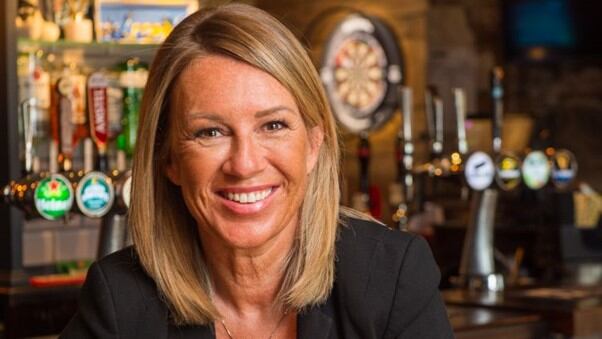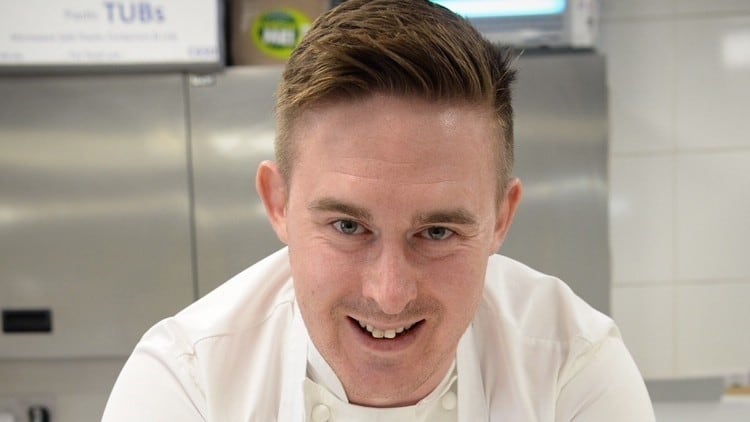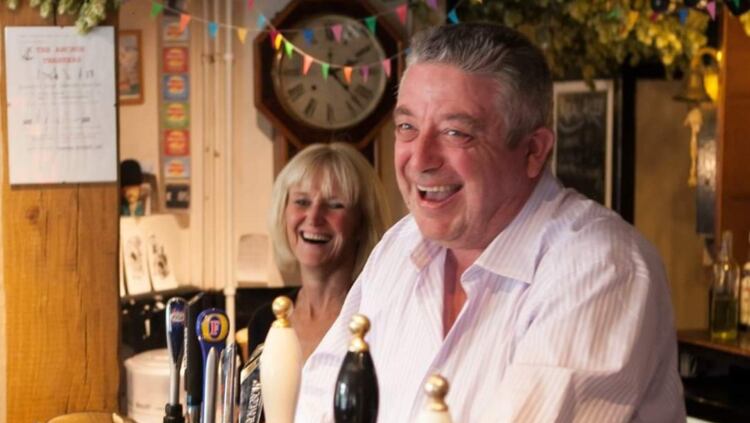Raise the bar with a career at Stonegate Group

Serve up something extra special with our Chapter Collection Pubs. Get ready for bottomless brunches at Slug & Lettuce. Shake up a storm as a Master Bartender with Be At One. Get paid to party in our late night Venues. Or be at the heart of a community with one of our Proper Pubs. Whatever gets you going, you can raise the bar with Stonegate Group.
As the largest pub, bar and late night venue company in the UK there are many ways to raise the bar with a new job with us. From our well-known town centre brands, to proper pubs and nightlife venues; our pubs, bars and clubs are the heart of communities they serve, whoever those communities may be! It’s not only pulling pints and serving cocktails, we also have a wide range of kitchen and kitchen management opportunities.
Here at Stonegate supporting and developing our teams is important to us. Our award-winning training programmes are designed to help you reach your career goals and our bar to boardroom mantra gives you permission to continue raising the bar on the great British pub.
Raise the bar, click here to find out more about careers at Stonegate.
Suggested salaries according to Taste Hospitality
- General Manager – £40k to £100k plus
- Deputy General Manager / Operations Manager - £30k to £40k
- Assistant Manager £24k-£28k
- Front of House Manager – £25k to £30k
- Restaurant Manager - £26k to 35k
- Assistant Restaurant Manager - £23k to £28k
- Bar Manager - £25k to £35k
- Head Sommelier - £30k to £35k
- Bar Assistant / Mixologist - £22k to £26k
- Head Waiter - £25k to £28k
- Restaurant Supervisor - £23k to £27k
- Waiter / Waitress - £20k to £25k
- Commis Chef - up to £25k
- Sous Chef - £28k to 335k
- Head Chef - £30k to £50k plus (more for bigger businesses)
The manager is no longer just the manager, the bar staff no longer just focus on the drinks offering as multiskilling within the pub environment has become the new normal with operators increasingly needing to rely on and recruit people who are able to touch all parts of the business.
While this has always been true to a certain extent, additional training and levelling up has never been more prevalent in terms of retention with 11% of jobs within the sector remaining vacant, according to CGA.
One way of executing this is investing in training programmes and communicating the opportunities a pub can offer as a career choice, not just a stop-gap.
Similarly to other pubcos, Fuller, Smith & Turner, for example, funds a series of structured training programmes and apprenticeships focusing on different routes within the business, from front of house to maintenance.
There are not many industries where at the age of 21, you can be running a million-pound business, which is quite exciting”
And while this may involve an upfront cost, this investment in people is “worth every penny”, according to Fuller’s people and talent director Dawn Browne.
She says: “We have a particular kind of ethos and culture and it’s easier to find the right person with the right culture set than train them to do that; recruit for personality and values, train the skill.”
Revolving door in hospitality
Browne continues: “It also makes significant financial sense. Those people that have been through development programmes build loyalty with us and are likely to stay longer, the revolving door in hospitality is a significant cost and anything we can do to address that is very helpful.
“Unfortunately, there is no simple answer for the current recruitment challenge but training has a significant impact.”
To bolster this impact, Browne added the sector needed to “start to see the recruitment challenge as a retention challenge”.
“A lot of people come to hospitality as a stop-gap job and fall in love with it. If you can capture those people and help them build a career here, you can develop incredible leaders of the future.
“There are not many industries where, at the age of 21, you can be running a million-pound business, which is quite exciting.”
However, competitive rates of pay are also being increasingly more important as the cost-of-living crisis continues for businesses and their staff.
According to Taste Hospitality recruitment, the average salary, depending on location, for a bar manager should be between £25k and £35k, £22k to £26k for a mixologist, £20k to £25k for a waiter and between £30k to £50k plus for a head chef.
Though offering career progression was still key to Taste Hospitality’s managing director Caroline Wright because “[businesses] offering career progression [will stand out]”.
Additionally, while it’s important to diversify and upskill amid current economic headwinds, Wright added a clear structure for daily tasks and career progression is crucial in any pub operation.
She says: “Some companies might have a manager, and then the rest of the team are all on the same level, which won't be any good because people will need a certain job title, not because of ego, but to show they've actually progressed from, for example, waiter to restaurant supervisor, etc.”
Motivate and encourage
Wright continues: “It's important to have a structure in place [and make sure there is training on offer] to give staff something to work towards and to motivate and encourage them.”
Though this structure and the responsibilities of job roles can vary across different pub models, according to Stonegate, which operates some 4,500 pubs nationwide across its managed estate, its partners estate and its operator led model, Craft Union.
Stonegate HR director Tim Painter says: “[Most pubs] will have a general manager responsible for the delivery of the offer and [health and safety].
“They are accountable for the profit and loss of that pub or bar [but] would typically be supported by a number of deputy managers.”
It's really important to be able to multitask and multiscale within the pub environment"
Painter continues: “The number of deputy managers would depend on the size of the site, but they run [things] when the general manager isn't working. They would also typically be allocated specific duties [such as] recruitment, cellar management – it could be a variety of things.
“They're effectively the person who deputises or the general manager when they are not on shift.
“In food pubs, there would then be a kitchen manager, ensuring the food comes out to a good quality and managing the health and safety implications of food delivery, such as allergens.
“Then you would then have team leaders for both front and back of house, which are shift supervisors [plus] the front-of-house team members for both kitchen and bar staff, and these guys are serving our guests, running through to tables, and making great drinks.”
However, while each role plays a part in keeping a pub running smoothly, the general manager’s position is “fundamentally important”, according to Painter because “it is very much their responsibility to ensure team meetings are happening, people know their hours, and where duties and responsibilities are delegated.”
Furthermore, much like job roles and responsibilities varying across different pub models, the working day itself has adapted in recent years, according to Star Pubs & Bars people director Caren Geering (pictured below).

She says: “If you are the pub manager, the day starts from deliveries early in the morning, paperwork, setting up, cleaning the pub, making sure it is ready to open and trade.”
Meeting and greeting
Geering continues: “If you're coming in to work on the bar or waitress, you'd come in a little bit earlier, look at the bookings for the day, make sure you're set up and prepared, stocked up on fridges and snacks behind the bar, tables are laid up, all the advertising is out on the table for your promotions.
“During the day, it's all about meeting and greeting customers, and creating that warm welcome and great atmosphere.”
Moreover, Geering added multiscale development of job roles “makes for a more efficient business” and “important” for all pub people.
She says: “We're upskilling people a lot more these days to be able to jump in the kitchen and to be able to waitress or waiter; it's really important to be able to multitask and multiscale within the pub environment.
“If there is sickness or somebody who is unable to turn up, somebody can jump into that part of the business really quickly, there's no concern, there isn't a lack of skill [and support] in that particular area, particularly if it gets busy.”
Though Geering added consumers’ post-pandemic expectations were much higher in terms of quality and staff needed to be able to “have the skill to handle that” when working in such a busy environment.
SPOTLIGHT Q&A
Dave Wall: chef-patron of the Unruly Pig, Bromeswell, Suffolk

Why is hospitality a good industry to work in?
“It's very rewarding. I'm a firm believer in choosing a job you love and you'll never feel like you're at work too much if you can take fulfilment and enjoyment out of your daily tasks. As a chef, I love cooking, and it just never feels like a chore to be on the stoves and doing something I enjoy so much.”
What does a daily shift look like for a chef and how many hours a week do they work?
“[Chefs] probably work 48 to 50 hours [a week], during high season though they might have to creep a few more in.
“Usually, we have a fair few deliveries first thing. So, they'll come in, check off the deliveries, have a good look through the fridge and their section and see what they've got already.
“They'll be given a handover list, if they weren't there themselves, the day before, written by somebody else detailing what the tasks for the day are. There'll be briefed by whoever's running the kitchen on what’s on the books that day, and potentially, over the next few days that they need to be gearing up for.
“[After that] they’ll spend the morning doing prep work and getting everything as close to prepared as possible so when actual service starts, it’s minimal effort required to get it from fridge to the plate.
“After lunch services, clean out the kitchen, they might have something to eat at that stage, little break and then back at the prep again and repeat to get ready for dinner service, if they're doing a double shift, or they might be finishing up and handing over to somebody else.”
What sort of personality is required to succeed as a chef?
“It definitely requires discipline and attention to detail. It’s all well and good if somebody is capable of cooking a nice meal, but that actually doesn't necessarily lead them to being a great chef because it's largely how well they can organise their time how well they can manage their task list to make sure when it comes to service time, they're organised and ready to go.
“If they don't have astute discipline and focus, good time management, the ability to prioritise and shuffle their tasks, and they're disorganised, it doesn't really matter how good they are at cooking, if they're not ready, then they won't deliver a good performance.
“[Being a chef] probably requires a much higher level of intelligence than it might be given credit for, it’s just a different type of aptitude that's needed.”
Nevertheless, with the recruitment crisis recently estimated by trade body UKHospitality to be costing the sector some £22bn a year, Painter added the industry had a collective responsibility to showcase the opportunities working in this “fantastic sector” can provide.
He says: “What we find is when you enrol people on to the various stages of our career pathway, retention improves by a significant amount, as much as 100%, because people feel the business is investing in them, and that they've got a future.”
We really do need to share more about what hospitality has to offer”
Painter continues: “What we do is fundamentally socially important, we’re giving people that opportunity to come out and mix with their family and friends in a great environment, in something so quintessentially British, the British pub.
“It’s really important and, as a sector, we have got a collective job to remind people of that and reach out to get more people excited about coming and working for us, because it is quite simply the best sector to work in.”
This is echoed by Geering, who said after starting out as a cleaner in pub and moving up the ranks, more needed to be done to “change the narrative” regarding working in pubs.
She says: “We really do need to share more about what hospitality has to offer and work, in general, on hospitality becoming more attractive through visibility on social media and talking about successes.
“We need to talk about people's journeys and actually show that this is a profession and it leads to other avenue in breweries, pubcos, accommodation, management; it isn't a part time job [or stop-gap] all the time.”





